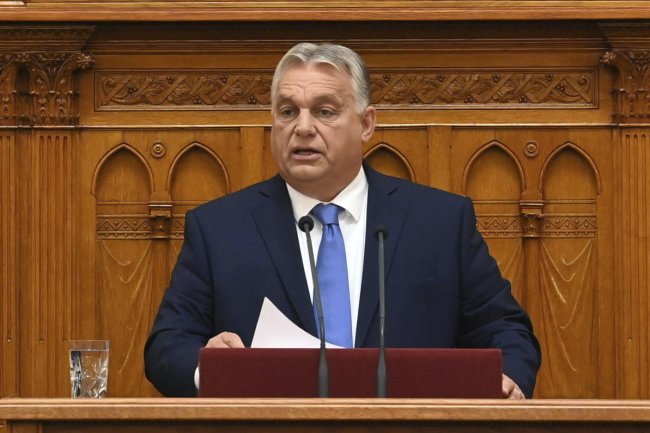U.S. Tries to Build Ties in China’s Backyard
Treasury Secretary Janet Yellen to visit India, Vietnam a week after China trip Janet Yellen says encouraging trade ties with other nations is aimed at diversifying supply chains and protecting national security. Photo: POOL/via REUTERS By Andrew Duehren July 13, 2023 1:00 pm ET Treasury Secretary Janet Yellen is visiting two of China’s neighbors where she has pushed firms to move their operations—a week after she reassured officials in Beijing that the U.S. wasn’t out to sever trade and investment ties. The trip to India and Vietnam underlines a central tension in the U.S.-China economic relationship: Yellen and the Biden administration must figure out how to promote alternatives to China without further upsetting relations with Beijing. U.S. attempts to distan


Janet Yellen says encouraging trade ties with other nations is aimed at diversifying supply chains and protecting national security.
Photo: POOL/via REUTERS
Treasury Secretary Janet Yellen is visiting two of China’s neighbors where she has pushed firms to move their operations—a week after she reassured officials in Beijing that the U.S. wasn’t out to sever trade and investment ties.
The trip to India and Vietnam underlines a central tension in the U.S.-China economic relationship: Yellen and the Biden administration must figure out how to promote alternatives to China without further upsetting relations with Beijing.
U.S. attempts to distance itself from China carry huge stakes for the world economy. Western officials worry they are too reliant on China for a host of critical exports, but they fear that a collapse in relations with the country could augur economic disaster.
Treasury Secretary Janet Yellen pressed China for better communication to prevent global economic risks during talks with Chinese officials on Saturday. Photo: Pool / Reuters
India, where Yellen will attend a gathering of global economic officials from July 16-18, and Vietnam, where she will visit from July 20-21, have emerged as key beneficiaries of strains between the world’s two largest economies. Firms increasingly invest and produce there at the encouragement of Yellen and other U.S. officials.
While Yellen has cast these shifts as part of a narrow effort to create more diverse supply chains and protect national security, Chinese officials view the U.S. moves as an attempt to hold back their economy’s growth and development. U.S. and Chinese officials agreed to keep talking after Yellen’s trip, a positive sign after relations plummeted over Taiwan, technology, the Ukraine war and a Chinese balloon.
“It’s a thin line for Secretary Yellen to walk after the China trip,” said Huong Le Thu, an adjunct fellow at the Center for Strategic and International Studies who studies southeast Asia.
A senior Treasury official said Yellen’s calls for supply-chain diversification aren’t aimed exclusively at China, adding that she will continue to explain that the U.S. isn’t trying to disrupt the global economy or force countries to pick sides between Washington and Beijing.
The Chinese embassy in Washington didn’t immediately respond to a request for comment.
Both India and Vietnam have seen their economic ties with the U.S. grow in recent years, with American companies such as Apple
eyeing the countries as alternative manufacturing hubs to China.Propelled by U.S. tariffs on Chinese goods, trade between the U.S. and Vietnam more than doubled to roughly $140 billion in 2022 from $60 billion in 2018, while trade between the U.S. and India increased to $130 billion from $87 billion over the same period.
Trade between the U.S. and China hit a record $690 billion last year, but China’s share of U.S. imports has been falling, and U.S. investment for new operations in China has dried up.
The U.S. has aggressively courted India as a counterweight to China in the region. President Biden recently welcomed Indian Prime Minister Narendra Modi for a state visit, and Yellen’s visit to Gandhinagar, India, will be her third stop in the country since November. India is hosting this year’s gatherings of ministers from the Group of 20 major economies.

Narendra Modi with President Biden and first lady Jill Biden during the Indian prime minister’s state visit last month in Washington.
Photo: Andrew Harnik/Associated Press
Officials in southeast Asia want the U.S. to do more to encourage trade and investment in their countries. But India, Vietnam and others have deep economic relationships with China, too, and don’t want to upset those ties by siding too closely with the U.S.
“We don’t want to be forced to make a choice,” Indonesian Finance Minister Sri Mulyani Indrawati said in a recent interview.
Yellen will also gather in India with European and other global officials, who are likely to seek information on her trip to China. The International Monetary Fund has warned that the U.S.-China rivalry could split the world economy into fragments, slowing economic growth.
Yellen has sought to steer U.S. policy to avoid that happening—and make the case to other foreign partners that U.S. policy toward China won’t endanger their economies.
“Everyone is going to be interested in what Yellen has to say about the China trip,” said Mark Sobel, a former Treasury official.
The U.S. and Vietnam have in recent years resolved some policy barriers between them.
The Treasury Department designated Vietnam as a currency manipulator during the Trump administration, arguing the country weakened its currency to gain an unfair trade advantage and threatening new tariffs. Under the Biden administration, the U.S. didn’t penalize Vietnam, which pledged to stop weakening the dong. The Biden administration has also used emergency powers to stave off tariffs on solar imports from Vietnam and three other southeastern Asian countries accused of rerouting Chinese goods subject to tariffs.
Write to Andrew Duehren at [email protected]
What's Your Reaction?













